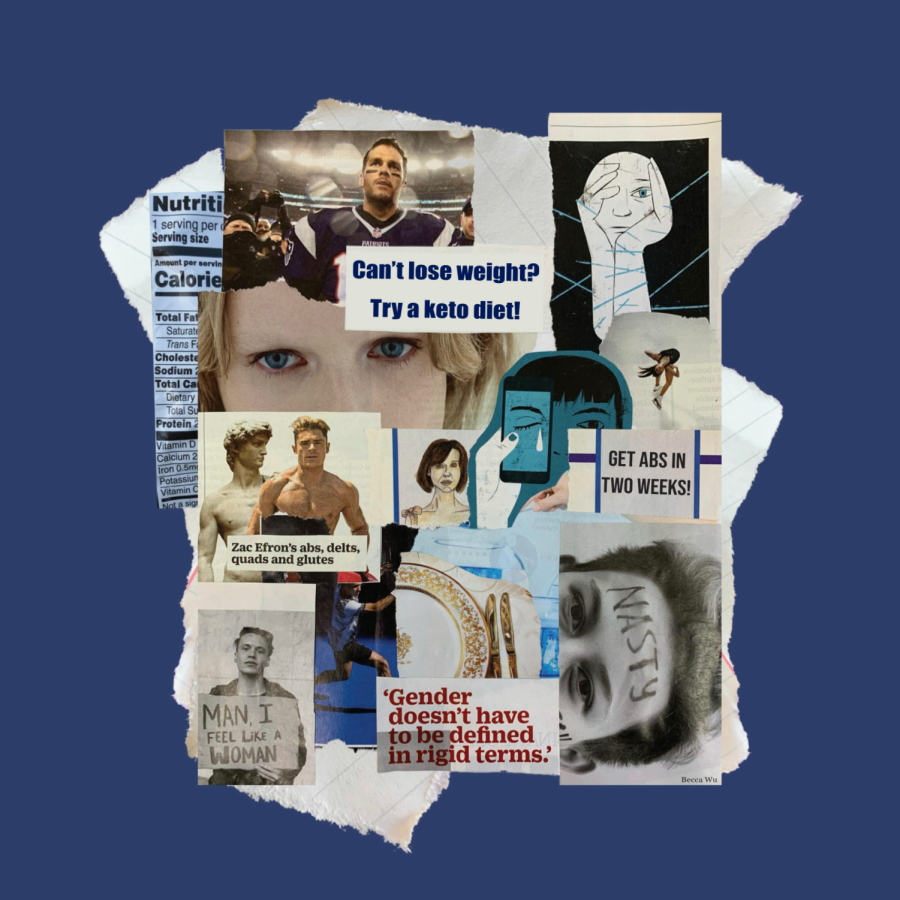Men’s body standards prompt unhealthy workout habits
To trace the evolution of the male body standard from years past, we only need to look at Superman. Since his creation in 1938, the iconic superhero has represented the ideal American man—strong, handsome and selfless. In the “Superman” movies from 1978 to 1987, the hero was played by Christopher Reeves, a man with an athletic but not crazily muscular build. In 2013 to 2016, however, Henry Cavill replaced Reeves as Superman, making Reeves’ Superman seem almost puny in contrast to Cavill’s incredibly buff counterpart.
Superman’s body type mirrors that of the fluctuating American beauty standards. The ideal male body has roughly remained lean, athletic and muscular in recent years—physical traits that reflect the social standard for male behavior as strong, confident and infallible. In order to feel like a man, society believes that one must look like a man.
In a study on adolescent male body dissatisfaction published to the National Institutes of Health, researcher Jessica H. Baker and her team found that the two main factors that govern a teenage boy’s satisfaction with his body are height and muscle. In the study, 67% of the boys reported low dissatisfaction with their height, while 79.3% reported intermediate to severe dissatisfaction with their muscle mass.
Due to coexisting desires to improve his mental state and transform his body, senior Darshan Dullabh found himself gravitating towards weightlifting. “I was overweight and borderline obese, and I saw weightlifting as an opportunity to change myself for the better, both mentally and physically,” he said. “This was and is my motivation for weightlifting: the ability to transform my body into what I want.
It became an addictive feeling that fueled and motivated me to get up and make a change.”
Many recent gym practices are targeted to build more muscle, a determination partly fueled by the desire to conform to the ideal male standard. This includes bulking, a procedure where a skinnier person looking to build muscle will consume calories far exceeding their typical intake in an effort to gain weight. Eventually, the intention is to turn that added weight into muscle through an intense workout and lifting routine called “cutting.” While the bulking and cutting procedure is a practice aimed at achieving positive results in the long run, such erratic diets and fitness regimens can cause lasting damage to the body. According to Healthline, side effects include increased risk of injury, sluggishness and elevated blood cholesterol and sugar levels.
While bulking may have its physical benefits, it can also negatively impact people mentally. “Due to the bulking process [that] adds more fat on an individual’s body, specifically in the midsection and face, athletes may oftentimes form minor negative feelings toward themselves and their self-image,” Dullabh said.
According to senior Amar Srivastava, his idea of the ideal male body is also shaped by the media he consumes online. “I think the media in general, whether it be social media, television or movies, has had the biggest negative effect on my body image,” he said. “I’ve realized that I’m not a ‘conventionally attractive’ man. I see the men that are regarded as being attractive, and I look nothing like them.”
While observing picture-perfect models in modern media can be disheartening for the everyday viewer, Srivastava’s eventual path to self-confidence gives him hope that others can feel the same. “I used to abhor the way I looked because I didn’t feel represented in the media as an ‘ideal’ male, even in my ethnicity,” he said. “But I feel as though I’ve made great strides. I actually love the way I look now. I like that I look unique. It’s important to remember that [ideal body types] aren’t representative of true beauty. At the risk of sounding cliché, everyone is beautiful, and looking different makes you beautiful.”
Your donation will support the student journalists of Henry M. Gunn High School. Your contribution will allow us to purchase equipment and cover our annual website hosting costs.

Jessica Zang, a senior, is a Features Editor and Assistant Business Manager for The Oracle, and has been on staff since Jan. 2020. When she's not spending...


